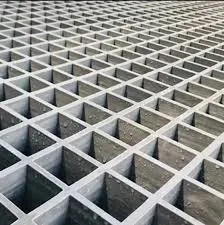
-
 Afrikaans
Afrikaans -
 Albanian
Albanian -
 Amharic
Amharic -
 Arabic
Arabic -
 Armenian
Armenian -
 Azerbaijani
Azerbaijani -
 Basque
Basque -
 Belarusian
Belarusian -
 Bengali
Bengali -
 Bosnian
Bosnian -
 Bulgarian
Bulgarian -
 Catalan
Catalan -
 Cebuano
Cebuano -
 China
China -
 China (Taiwan)
China (Taiwan) -
 Corsican
Corsican -
 Croatian
Croatian -
 Czech
Czech -
 Danish
Danish -
 Dutch
Dutch -
 English
English -
 Esperanto
Esperanto -
 Estonian
Estonian -
 Finnish
Finnish -
 French
French -
 Frisian
Frisian -
 Galician
Galician -
 Georgian
Georgian -
 German
German -
 Greek
Greek -
 Gujarati
Gujarati -
 Haitian Creole
Haitian Creole -
 hausa
hausa -
 hawaiian
hawaiian -
 Hebrew
Hebrew -
 Hindi
Hindi -
 Miao
Miao -
 Hungarian
Hungarian -
 Icelandic
Icelandic -
 igbo
igbo -
 Indonesian
Indonesian -
 irish
irish -
 Italian
Italian -
 Japanese
Japanese -
 Javanese
Javanese -
 Kannada
Kannada -
 kazakh
kazakh -
 Khmer
Khmer -
 Rwandese
Rwandese -
 Korean
Korean -
 Kurdish
Kurdish -
 Kyrgyz
Kyrgyz -
 Lao
Lao -
 Latin
Latin -
 Latvian
Latvian -
 Lithuanian
Lithuanian -
 Luxembourgish
Luxembourgish -
 Macedonian
Macedonian -
 Malgashi
Malgashi -
 Malay
Malay -
 Malayalam
Malayalam -
 Maltese
Maltese -
 Maori
Maori -
 Marathi
Marathi -
 Mongolian
Mongolian -
 Myanmar
Myanmar -
 Nepali
Nepali -
 Norwegian
Norwegian -
 Norwegian
Norwegian -
 Occitan
Occitan -
 Pashto
Pashto -
 Persian
Persian -
 Polish
Polish -
 Portuguese
Portuguese -
 Punjabi
Punjabi -
 Romanian
Romanian -
 Russian
Russian -
 Samoan
Samoan -
 Scottish Gaelic
Scottish Gaelic -
 Serbian
Serbian -
 Sesotho
Sesotho -
 Shona
Shona -
 Sindhi
Sindhi -
 Sinhala
Sinhala -
 Slovak
Slovak -
 Slovenian
Slovenian -
 Somali
Somali -
 Spanish
Spanish -
 Sundanese
Sundanese -
 Swahili
Swahili -
 Swedish
Swedish -
 Tagalog
Tagalog -
 Tajik
Tajik -
 Tamil
Tamil -
 Tatar
Tatar -
 Telugu
Telugu -
 Thai
Thai -
 Turkish
Turkish -
 Turkmen
Turkmen -
 Ukrainian
Ukrainian -
 Urdu
Urdu -
 Uighur
Uighur -
 Uzbek
Uzbek -
 Vietnamese
Vietnamese -
 Welsh
Welsh -
 Bantu
Bantu -
 Yiddish
Yiddish -
 Yoruba
Yoruba -
 Zulu
Zulu
fiberglass cover
The Versatility and Benefits of Fiberglass Covers
In recent years, fiberglass covers have gained popularity across various industries due to their robustness, lightweight characteristics, and exceptional durability. From automotive applications to construction, the versatility of fiberglass makes it a preferred material for protective coverings.
What is Fiberglass?
Fiberglass, composed of fine strands of glass woven together, is a composite material that exhibits remarkable strength and resilience. When combined with resins, fiberglass forms a sturdy and weather-resistant structure. This unique composition allows fiberglass covers to withstand harsh environmental conditions, making them ideal for outdoor use.
Applications of Fiberglass Covers
1. Automotive Industry Fiberglass covers are increasingly used in the automotive sector. They are employed as hoods, body panels, and decorative elements. The lightweight nature of fiberglass contributes to improved fuel efficiency while ensuring that the vehicles maintain their structural integrity.
2. Construction In the construction industry, fiberglass covers are utilized for roofing, skylights, and cladding. These covers are not only aesthetically pleasing but also provide excellent insulation and weather resistance. The ability of fiberglass to be molded into various shapes allows architects and builders to experiment with innovative designs.
3. Marine Services Fiberglass is particularly popular in boat manufacturing due to its resistance to corrosion and water damage. Covers made of fiberglass protect vital components from saltwater exposure and UV radiation, extending the lifespan of marine vessels.
4. Industrial Equipment Many industrial applications, such as tanks, hoppers, and ductwork, utilize fiberglass covers for their durability and low maintenance requirements. These covers can withstand extreme chemicals and temperatures, making them ideal for manufacturing plants and chemical facilities.
fiberglass cover

Advantages of Fiberglass Covers
- Durability Fiberglass covers can endure significant wear and tear. They resist impacts, chemicals, and corrosion, ensuring longevity even in challenging environments.
- Lightweight Despite their strength, fiberglass covers are lightweight compared to traditional materials such as metal or concrete. This feature not only simplifies handling and installation but also contributes to energy efficiency, especially in transportation and construction applications.
- Low Maintenance Fiberglass does not require frequent maintenance. Its smooth surface minimizes dirt accumulation, making it easier to clean. This factor is particularly advantageous in industries where hygiene is paramount.
- Aesthetic Flexibility Fiberglass covers can be manufactured in a variety of colors and finishes. This aesthetic flexibility allows businesses to maintain brand consistency while also ensuring that the covers complement the overall design.
- Cost-Effectiveness In the long run, fiberglass covers can be more cost-effective than other materials. Their durability and low maintenance characteristics mean that companies can save on replacement and upkeep costs.
Conclusion
Fiberglass covers represent a significant advancement in material technology, providing a combination of strength, lightweight design, and versatility. Whether in the automotive, construction, marine, or industrial sectors, the advantages of using fiberglass are undeniable. As industries continue to seek materials that enhance performance while reducing costs, fiberglass covers will undoubtedly play an increasingly prominent role in the future. Investing in fiberglass covers not only ensures durability and protection but also promotes a sustainable approach to material use, making them an excellent choice for various applications.
Latest news
-
Exploring the Benefits of Top Hammer Drifter Rods for Enhanced Drilling PerformanceNewsJun.10,2025
-
High-Precision Fiberglass Winding Machine for GRP/FRP Pipe Production – Reliable & Efficient SolutionsNewsJun.10,2025
-
FRP Pipes & Fittings for Shipbuilding - Corrosion-Resistant & LightweightNewsJun.09,2025
-
Premium FRP Flooring Solutions Durable & Slip-ResistantNewsJun.09,2025
-
Premium Fiberglass Rectangular Tanks Durable & Lightweight SolutionNewsJun.09,2025
-
Tapered Drill String Design Guide Durable Performance & UsesNewsJun.09,2025









